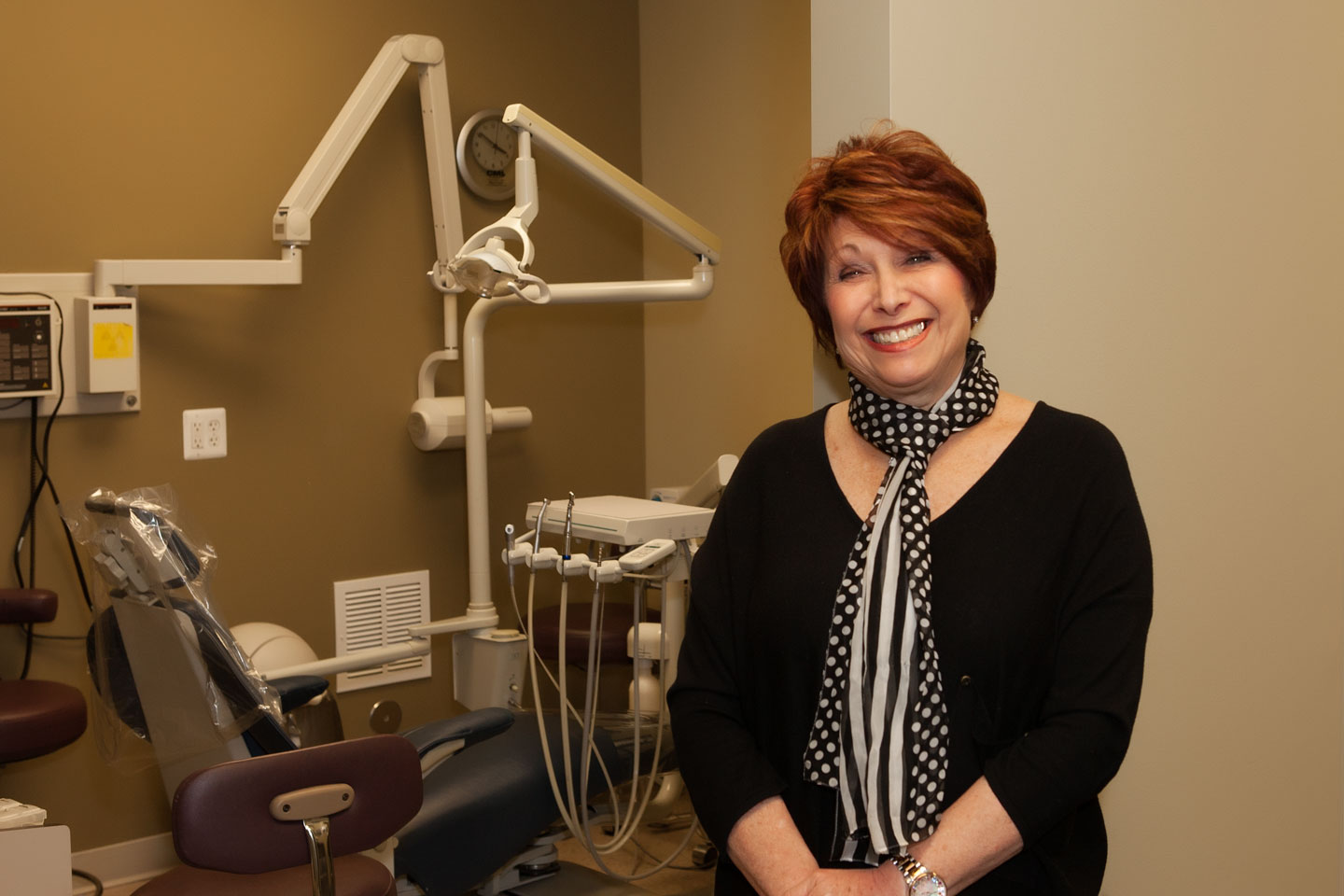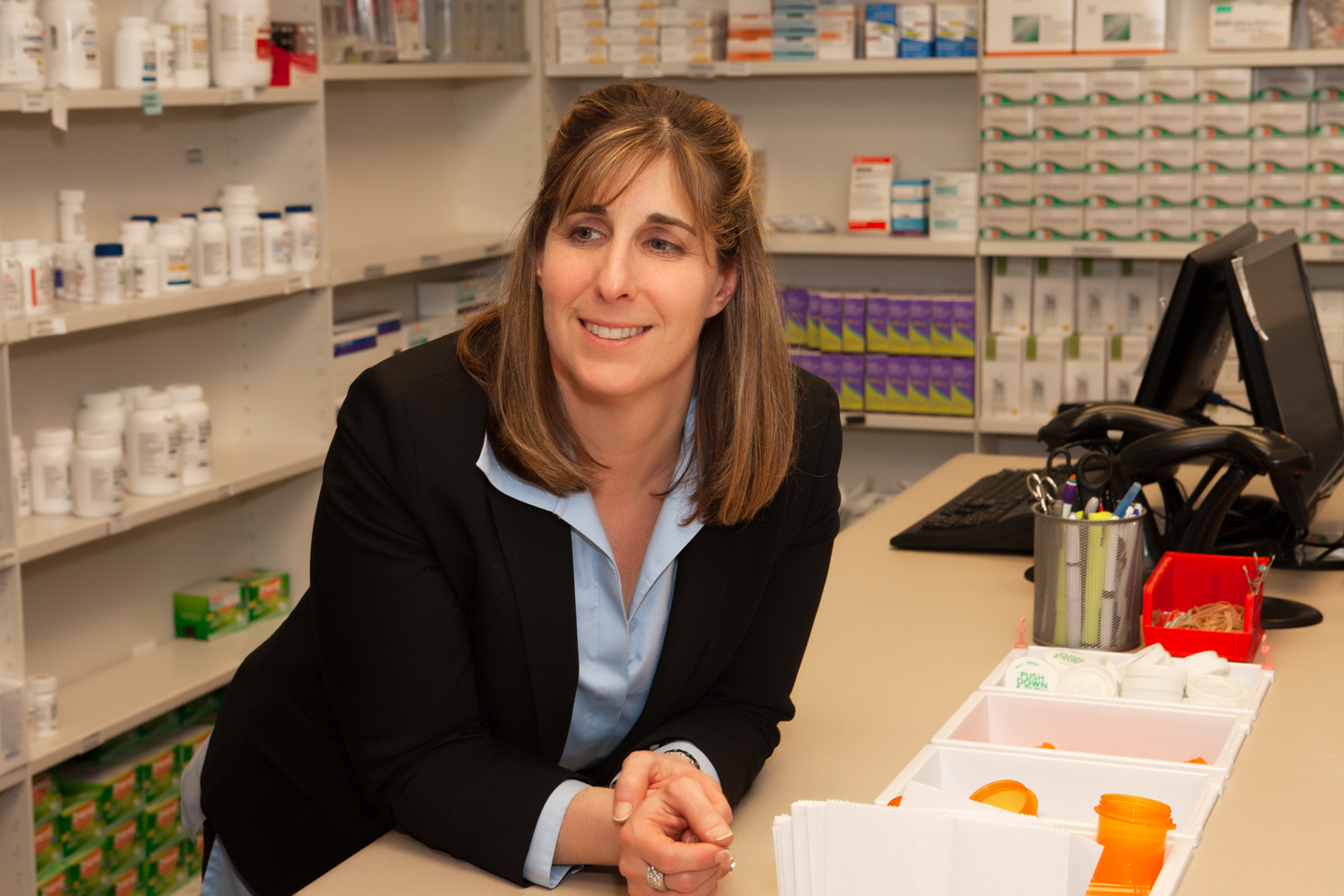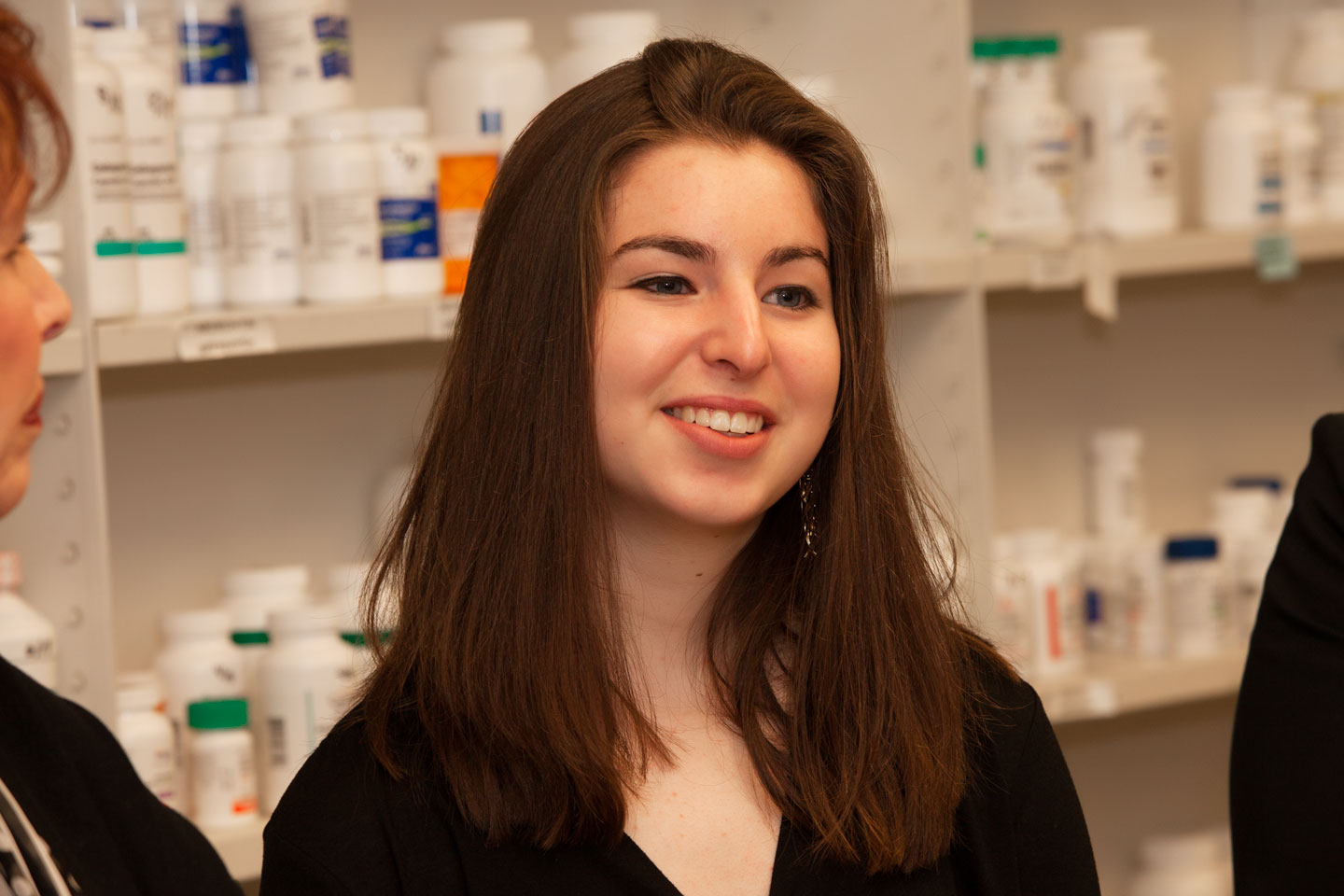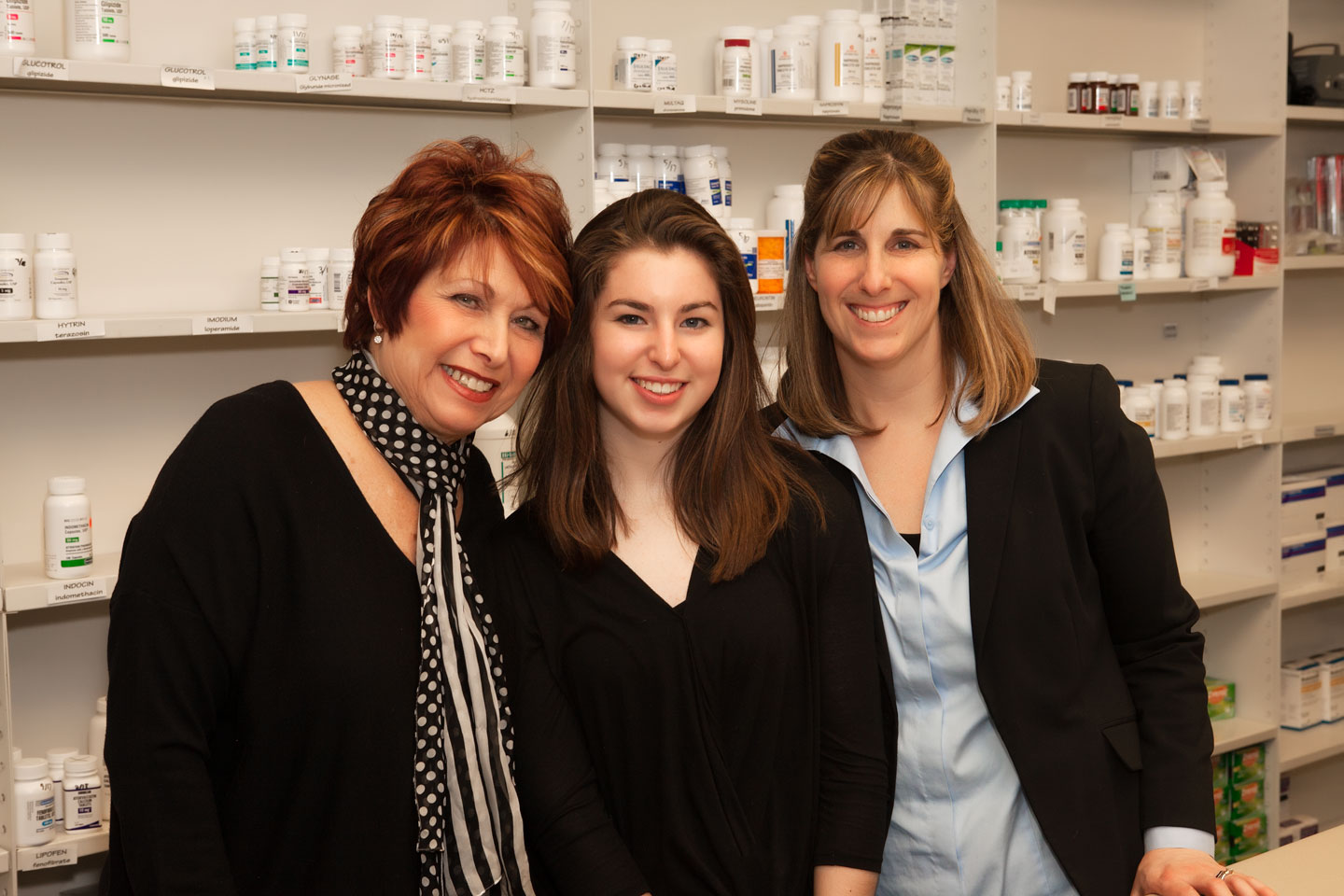by Vivian Henoch
Our story begins with one of the youngest members of the Burnstein-Taylor family: Jordyn — Gary Burnstein’s granddaughter. Jordyn is a sophomore at North Farmington High School and, by all typical standards of measurement, she is an outstanding, well-rounded student whose activities include varsity softball, marching band, community service with the “Junior Optimist Club” and leadership in BBYO. Beyond her academic and extracurricular activities this year, Jordyn serves on The Jewish Fund Teen Board – a responsibility that represents a significant commitment throughout the school year with the goal to learn about critical areas of need of the community and to employ the timely, real-life skills of grant-making.
Jordyn was a toddler when her grandfather died. She has virtually no recollection of him, but in her application for the Teen Board, she refers to her grandfather’s work and her deeply felt connection to the clinic, stating, “The Jewish Fund is one of many organizations that gives grants to the clinic. I am so used to seeing the receiving end of the grants and I think that this opportunity is a great way to explore the other side of the exchange. . . I think it’s so important to give back.”

All in a family enterprise
As Jordyn indicates, the Gary Burnstein Community Health Clinic (GBCHC) is a closely-held family enterprise. Dana Burnstein has stayed at the helm as Chief Executive Officer – with her son, Ian Burnstein, President of the Board, and daughter, Lori Taylor, Board Member. With just four on the staff under Executive Director, Justin Brox MD and with the support of scores of volunteer doctors, GBCHC is the largest safety-net clinic in Oakland County, serving the healthcare needs of the uninsured and the most vulnerable community members. “GBCHC takes no federal money,” Dana emphasizes, “Community support is the lifeblood of the clinic and crucial to maintaining our services free of charge to our patients.”
To those who have never set foot in a free clinic, a visit to the Gary Burnstein Community Health Clinic may come as a surprise. In its new home – a 7,000 square foot, state-of-the-art facility at 45580 Woodward Avenue in Pontiac, the clinic provides access to top-quality medical and dental care, lab services, a pharmacy and preventative care. Last year, the clinic provided for more than 4,000 office visits and well over $1 million in free prescriptions to more than 2,000 patients.
“If my dad could see how his clinic has grown in capacity, the only thing he’d change would be to take his name off the building,” says Lori. “He never sought attention and didn’t believe in accolades for what he considered to be doing the right thing. After he passed away, we’d get letters from his patients sharing stories of his generosity – like the time he gave a homeless man a pair of shoes – literally — the shoes off his feet!”
“Gary was so modest, even his best friends didn’t know about his work as a one-man free clinic,” says Dana. “I used to tell him that he needed to let people know, so they could follow his example. But he was adamant that he did what he did – not for show – but because it was the right thing to do.”
Leading by example
Beyond her work at the clinic, Dana has been active with ORT for many years, and now serves on the board of the Jewish Hospice and Chaplaincy Network. Married to Jason Taylor, Lori has been a school teacher for 20 years and is now the Dean of Students at Waterford Mott High School, where she spends her days “striving to ensure students’ success through lots of conversations building their confidence that they can graduate.” One of Lori’s past students, Jessica, 17, recently moved in with the Taylor family – joining Jordyn and her younger brother Gabe. “We’ve known Jessica for a year and a half,” says Lori, “she’s living with us now because we believe she deserves the opportunities we can give her. That’s how we were raised and the example we want to set for our children.”
In a walk through the Dr. Gary Burnstein Community Health Clinic with Dana, Lori and Jordyn, we stop for a chat in the clinic pharmacy – what Lori calls their pride and joy. Lori explains “What we have here is like a mini CVS, thanks to a $400,000 gift from the William and Audrey Farber Family Foundation.”
What follows are excerpts, edited from our conversation – a three-generation perspective on the generosity of the community – family and friends and partners — who have built the clinic and continue to inspire those who work there – leading by example.
A conversation with Dana Burnstein, Lori Tayor and Jordyn Taylor
myJewishDetroit: Why a free clinic?
Lori: It is a popular misconception that free clinics are no longer needed because of the recent changes to healthcare legislation. As we know, that is not the case. Today, estimates show that the number of uninsured in Michigan is around 600,000 – with more than 100,000 in Oakland County. It used to be that we only saw the uninsured. Because rates and deductibles are so high, people can no longer afford the cost of insurance. So, now we’re starting to see the underinsured as well.

Dana: As the largest free clinic in Southeast Michigan, we are well positioned to care for the most vulnerable and often overlooked members of the community without access to healthcare. The biggest misconception is that people without insurance are the most destitute residents living in the city. While Detroit struggles with an underserved community, 58% of our fellow citizens residing in the suburban communities in the tri-county areas of Macomb, Oakland and Wayne Counties live at or below the poverty line. Our patients come from virtually every zip code. They are our neighbors.
And another myth: most of the patients we see are African American. The fact is that’s the least of our patient population at the GBCHC.
Lori: I think there’s also a misconception in the Jewish community that everybody is fine – no one needs help. That perception is changing now. I think people are starting to realize that there are individuals and families in our community falling through the cracks.
myJewishDetroit: How has the clinic grown?
Dana: Gary took an early retirement from his private practice and started seeing patients in the shelter in 1998. He had bigger plans to establish a clinic in the Jewish community – had even secured space thanks to real estate developer, Matt Lester, at Highland Towers in Oak Park. Gary passed away (too young!) at age 60 and never saw those plans come to fruition. But I still say God was watching, because the community that Gary had served in Pontiac rallied with a huge outpouring of support and helped renovate the Pontiac Rescue Mission – an effort spearheaded by the Kensington Church. The church put in an estimated half million dollars in terms of donated materials and labor. We opened in 2004, but in March the following year we had a fire which destroyed nearly all the medications in the pharmacy.
Back to square one, we ended up in another church, not the best of conditions. . .
Lori: But it was incredible that our volunteer docs came anyway. We had our patient files. . .
Dana: And the patients came – even under the most inconvenient circumstances, we all just made it work.
Lori: That really speaks to the kind of people who volunteer their time here. They are all so dedicated. Doing what’s good for the community. At that time – around 2005 – we had a three-year start-up grant from The Jewish Fund. And we continued to work at that location – at the corner of University and Wide Track Drive — up until 2015, when we acquired the building on Woodward.
myJewishDetroit: How did you get the building?
Dana: It was kind of a fluke. I had a meeting with my estate attorney – a trusted friend of Gary’s – and he just happened to ask how the clinic was going. When I told him how busy we were, he asked, “Need anything?” I kiddingly said, “Yeah, we could use a building” And he answered, “Really? I can help you with that.” And he did. And then, thanks to a generous grant from the Robert S. Peterson Foundation, we acquired and repurposed the Detroit Ball Bearing Company building and turned it into the beautiful facility we have today. Now we’re a place where people feel much better to visit — and truly cared for.”
myJewishDetroit: What other community support has the clinic received since moving to the new location?
Lori: We’ve recently expanded our space to create a community room, where we hold classes for healthy cooking and diabetes care. We also plan to use this space as a food distribution center, partnering with Gleaners, Project Healthy Community, Forgotten Harvest and volunteers from Temple Shir Shalom.
Dana: For people needing to get back to work, looking for a job, getting proper dental care can be a deal maker. So free dental care is also a huge part of what we do – and something that is not readily available in free clinic care, other than what the Jewish Dental Clinic offers in Oakland County. Thanks to generous funding from the Doris and Norman Van Gorp Foundation, we have a fully-equipped state-of the-art dental suite where we provide exams, X-rays – even dentures – all free of charge to patients. Given our beautiful facility, the Jewish Dental Clinic has recently chosen GBCHC as home base – so we are now poised to build even more capacity in dental care.
Lori: When we first moved to this location, one of our biggest concerns was to make sure we were on a bus route. The bus stop is right outside. Additionally, we are now working with Jewish Family Service to extend transportation service to the clinic.
Dana: Now that we have the capacity and capability to see more patients, we actually want to get more patients through our doors, as well as to expand some of our programming. A recent grant from The Jewish Fund has allowed us to engage in a strategic planning process.
myJewishDetroit: Jordyn, as a member of The Jewish Fund Teen Board, how does it feel to sit at the table where decisions will be made to fund programs helping people in the community?
Jordyn: We’ve just started the process of evaluating this year’s grant proposals with a focus on teen mental health and special needs programs. I can see where we’ve been given a real opportunity to change lives. Working together with so many different people I wouldn’t have otherwise met also has changed my perspective. It’s great to hear what other people think.
myJewishDetroit: Reflecting on all the milestones and achievements of GBCHC free clinic over the past decade, what makes you most proud?

Dana: Gary’s dream was that everyone should be treated with dignity. Every time I walk into our new building, I think that everything we’re doing is a reflection of him.
Lori: It makes me proud every day to be able to continue his dream – as much as I’d like to be here more, I contribute where I can with fundraising.
Jordyn: I’m the only grandchild in the family who knew my grandfather at all, but I was too young when he died to remember much about him. But I know him through this clinic and hearing all these stories. My grandfather left me a video, to tell me all the things he loved to do with me – and to this day, I feel he’s got our back, encouraging us to move forward.
Lori: My dad never considered himself to be religious. But there was never a question about his Jewish values. When we found out that he was sick, Rabbi Harold Loss came to the house for a visit. They got into the topic of religion, and Rabbi Loss said to him, “Let me give you my definition of what a religious man is, and you can tell me if you fit it. I think of a religious man as somebody who goes out and helps people and lives the life of a Jew. At that moment, I remember the look on Dad’s face. “Oh yeah,” he said, “I guess I am a religious man after all.”




